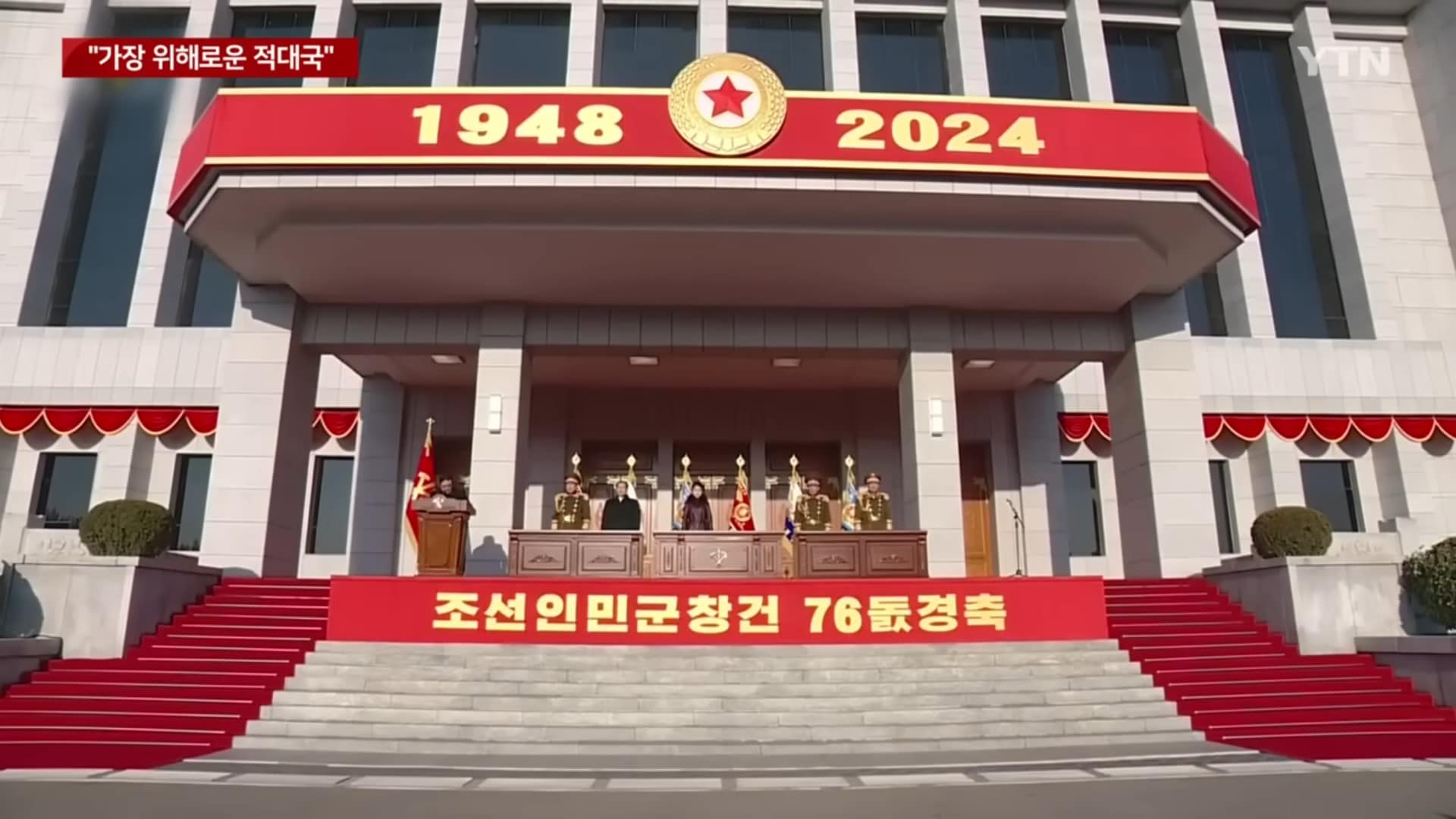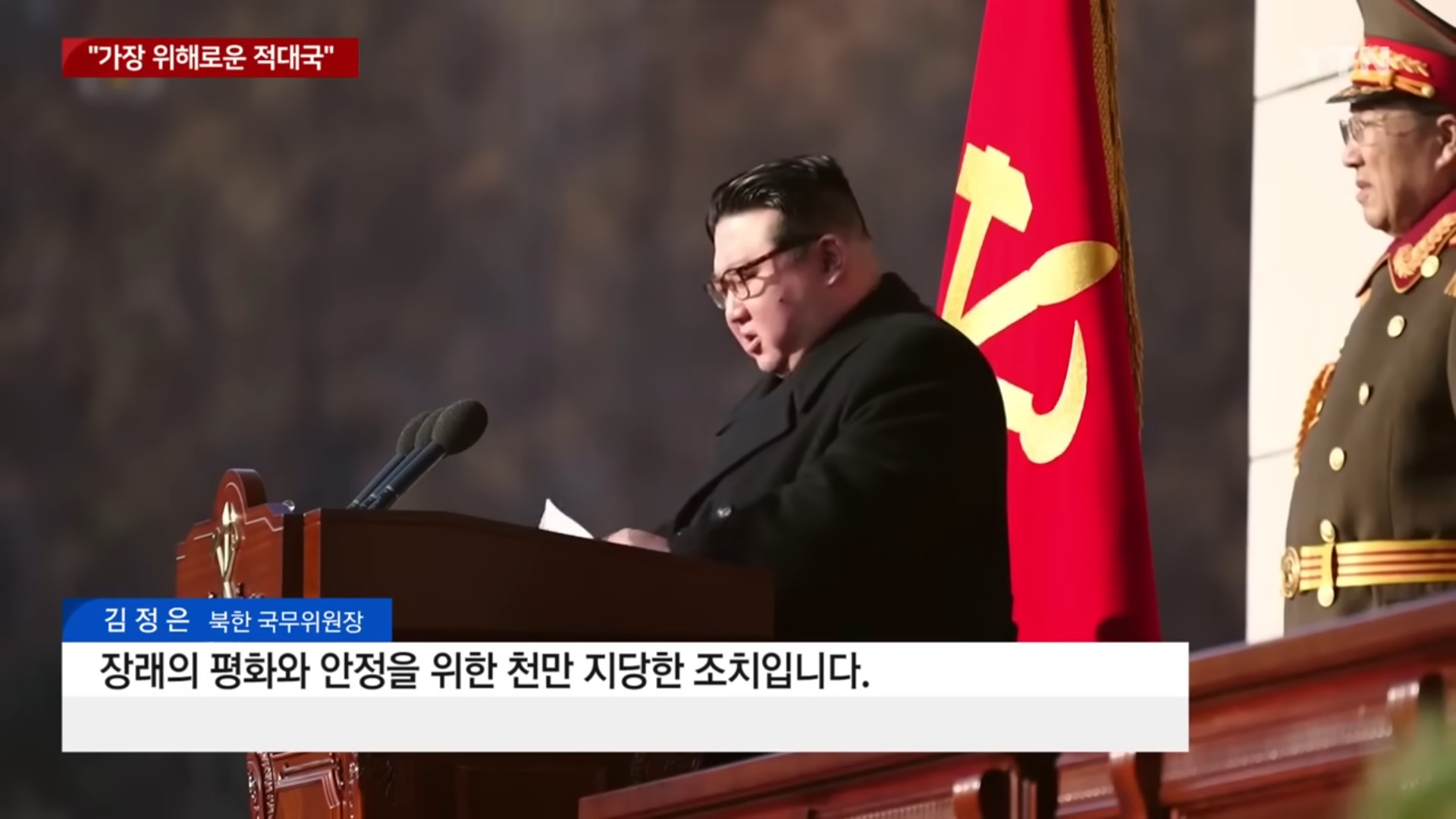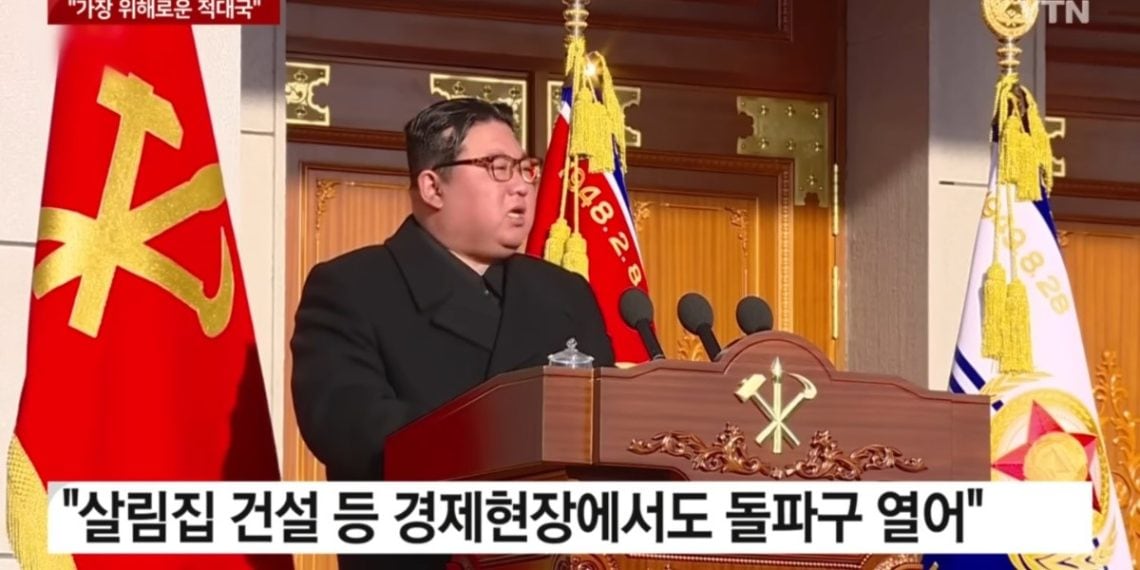Earlier this week, North Korea’s leader Kim Jong Un addressed a ceremony commemorating the founding of the country’s military, accompanied by his daughter, Kim Ju Ae. During the speech, Kim referred to South Korea as “Hanguk,” a departure from the North’s usual terms like “Nam Joseon” and “Namhan.”
In the speech, Kim identified South Korea as the “number 1 enemy country threatening our borders” and outlined a national policy to occupy and suppress the territory in case of an emergency.
He declared an end to formalities and negotiations with South Korean leaders who sought reunification through the overthrow of the People’s Republic.

This linguistic shift by Kim Jong Un has caught the attention of Korean netizens, as it marks a departure from the North’s historical terminology. Until the end of 2023, the North referred to South Korea as “Nam Joseon” or “Namhan.”
However, starting in December 2023 and continuing into January 2024, Kim began using “Daehanminguk” (Republic of Korea) to describe the South.
The significance of this change lies in the historical narrative propagated in North Korea. Textbooks portrayed “Namhan” as a U.S.-ruled colony, depicting the South as a place of poverty and starvation.
Smuggling of South Korean content into the North challenged this narrative, revealing that “Namhan” and “Hanguk” were in the same country.

With the influx of South Korean films, dramas, and K-Pop, the North Korean government struggled to control information, leading to an acknowledgement by North Koreans that “Namhan” and “Hanguk” refer to the same nation. This realization forced a shift in North Korea’s policy towards the South, marked by Kim Jong Un’s use of strong language like “enemy country.”
A K-netizen noted the abandonment of the reunification idea, stating, “They can’t keep saying that the people of the South are poor, starving, and desperately in need of saving from the American colonizers.”
Other comments expressed surprise at the use of “Hanguk” and speculated on the deteriorating North-South relations, questioning the future of the country under Kim Jong Un’s leadership.





